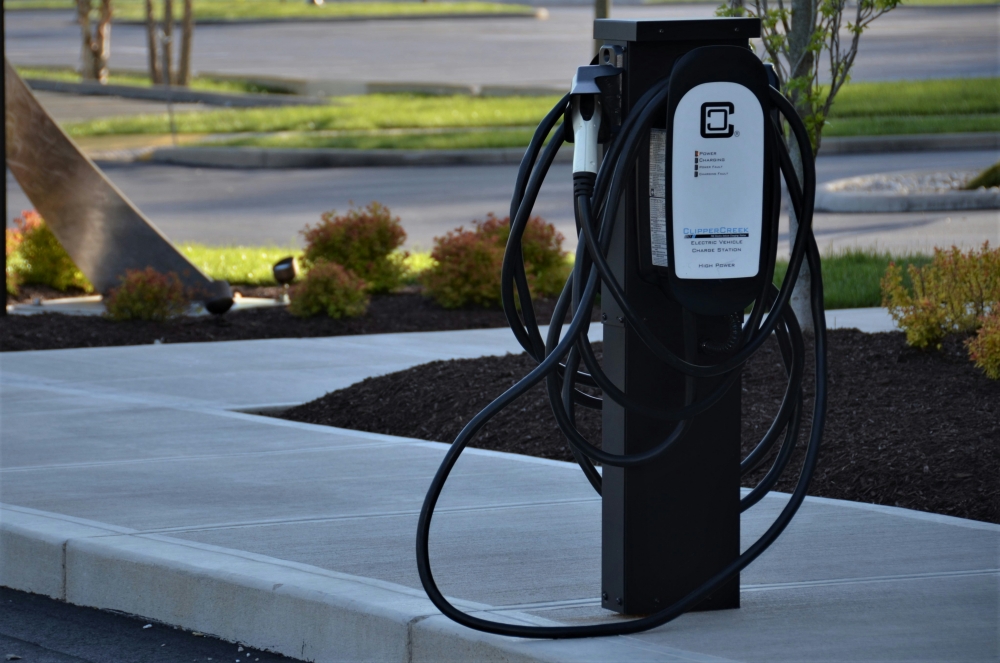
The rise of electric vehicles (EVs) on the global stage is more than just a trend; it is a transformative force with profound implications for the renewable energy sector.
As the world steers towards a more sustainable future, the growing adoption of EVs is accelerating demand for renewable energy sources. This burgeoning demand for clean energy is not only reshaping our roads but also how we generate and consume electricity.
But what exactly is the impact on renewable energy demand? This blog post aims to explore the implications of EVs on clean energy demand and how it helps to reduce carbon emissions.
Increased Demand for Green Energy
As the number of EVs on our roads multiplies, so does the demand for electricity to power them. This surge in electricity consumption, if not met by renewable sources, could potentially undermine the environmental benefits that EVs promise. The charging infrastructure required for EVs necessitates a significant increase in energy generation, and green energy is the most sustainable solution to meet this demand.
By integrating renewable energy sources into the EV ecosystem, we can ensure that the electricity used to charge these vehicles is clean and sustainable, furthering the goal of reducing carbon emissions. This is where Renewable Energy Certificates (RECs) come into play, providing a tangible link between EV charging and renewable energy generation.
Role of RECs in Supporting EVs
Renewable Energy Certificates (RECs) are instrumental in supporting the sustainability goals of the EV industry. These certificates serve as proof that a specific amount of electricity was generated from renewable sources. By procuring RECs, businesses and individuals involved in the EV sector can effectively offset the carbon footprint associated with EV charging, thus contributing to a greener and more sustainable transport system.
Moreover, RECs play a crucial role in promoting investment in renewable energy projects. Each REC represents a megawatt-hour (MWh) of renewable electricity generated and fed into the grid. For the EV sector, this translates into a tangible way to demonstrate their commitment to green energy and contribute to a cleaner environment.

REDEX’s Role in the EV Revolution
REDEX, as Asia’s leading REC trading platform, plays a pivotal role in linking the REC market with the burgeoning EV sector. With a robust and transparent platform for the trading and management of renewable energy, REDEX enables businesses and individuals in the EV industry to easily source and procure RECs. This facilitates the integration of renewable energy into EV charging infrastructure, enhancing the green credentials of the entire EV ecosystem.
Our comprehensive suite of services, including asset registration, production verification, and REC retirement, ensures the integrity and traceability of renewable energy claims. By choosing REDEX as their green energy platform, EV stakeholders can confidently demonstrate their commitment to sustainability and contribute to a cleaner future.
The Road Ahead: Accelerating Sustainability with EVs and RECs
The symbiotic relationship between the EV market and renewable energy advancements is undeniable. As EV adoption continues its upward trajectory, the demand for renewable energy will inevitably rise, making platforms like REDEX vital in facilitating the trade and management of RECs. This, in turn, will further drive the growth of the renewable energy sector, contributing to a more sustainable and environmentally friendly future.
The road ahead is clear: EVs are not just a mode of transport; they are a catalyst for change, driving the transition towards a cleaner and greener world. By embracing renewable energy solutions and leveraging platforms like REDEX, businesses and individuals in the EV sector can actively participate in this exciting journey towards a more sustainable future.

